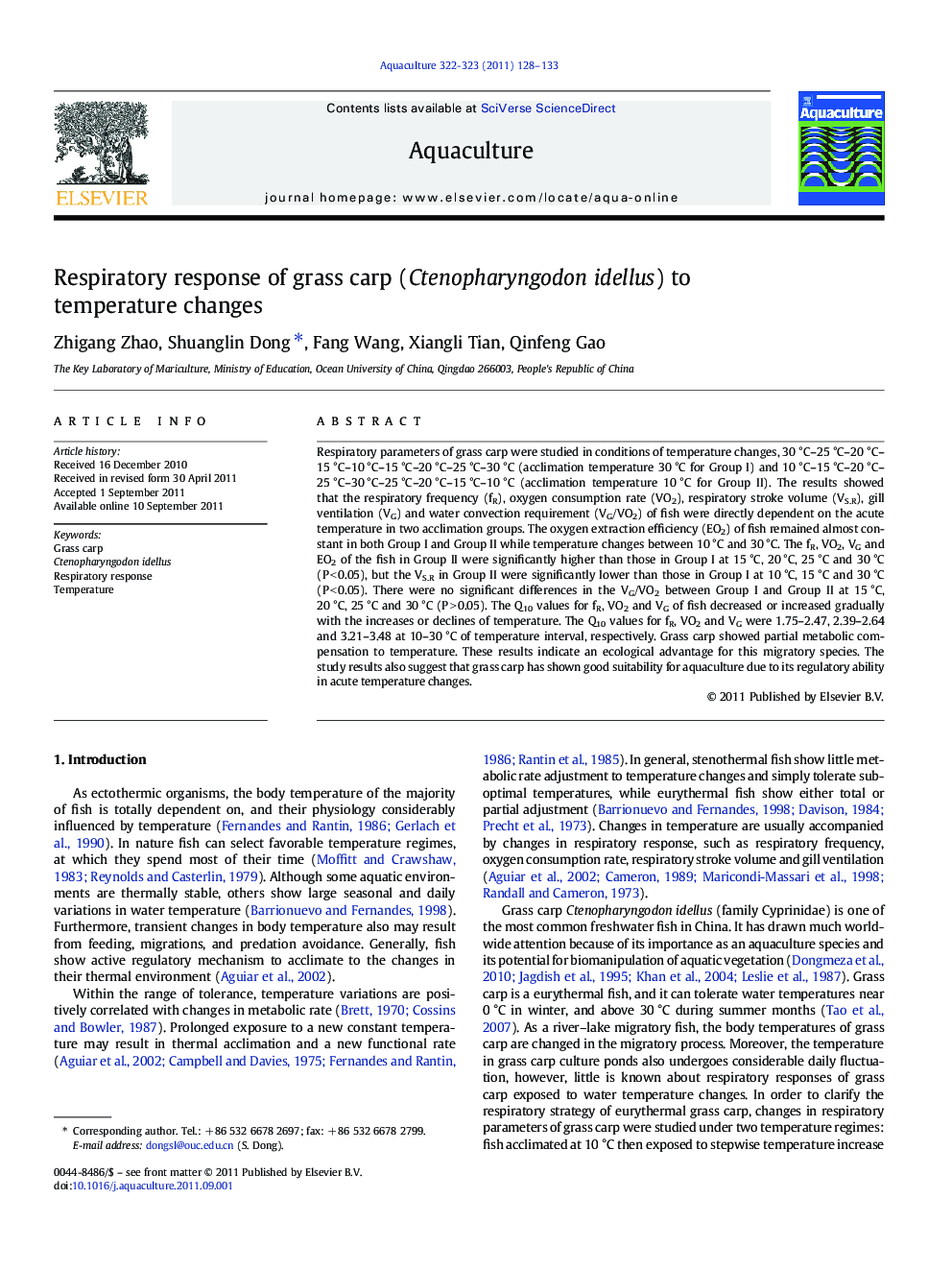| Article ID | Journal | Published Year | Pages | File Type |
|---|---|---|---|---|
| 2422815 | Aquaculture | 2011 | 6 Pages |
Respiratory parameters of grass carp were studied in conditions of temperature changes, 30 °C–25 °C–20 °C–15 °C–10 °C–15 °C–20 °C–25 °C–30 °C (acclimation temperature 30 °C for Group I) and 10 °C–15 °C–20 °C–25 °C–30 °C–25 °C–20 °C–15 °C–10 °C (acclimation temperature 10 °C for Group II). The results showed that the respiratory frequency (fR), oxygen consumption rate (VO2), respiratory stroke volume (VS.R), gill ventilation (VG) and water convection requirement (VG/VO2) of fish were directly dependent on the acute temperature in two acclimation groups. The oxygen extraction efficiency (EO2) of fish remained almost constant in both Group I and Group II while temperature changes between 10 °C and 30 °C. The fR, VO2, VG and EO2 of the fish in Group II were significantly higher than those in Group I at 15 °C, 20 °C, 25 °C and 30 °C (P < 0.05), but the VS.R in Group II were significantly lower than those in Group I at 10 °C, 15 °C and 30 °C (P < 0.05). There were no significant differences in the VG/VO2 between Group I and Group II at 15 °C, 20 °C, 25 °C and 30 °C (P > 0.05). The Q10 values for fR, VO2 and VG of fish decreased or increased gradually with the increases or declines of temperature. The Q10 values for fR, VO2 and VG were 1.75–2.47, 2.39–2.64 and 3.21–3.48 at 10–30 °C of temperature interval, respectively. Grass carp showed partial metabolic compensation to temperature. These results indicate an ecological advantage for this migratory species. The study results also suggest that grass carp has shown good suitability for aquaculture due to its regulatory ability in acute temperature changes.
